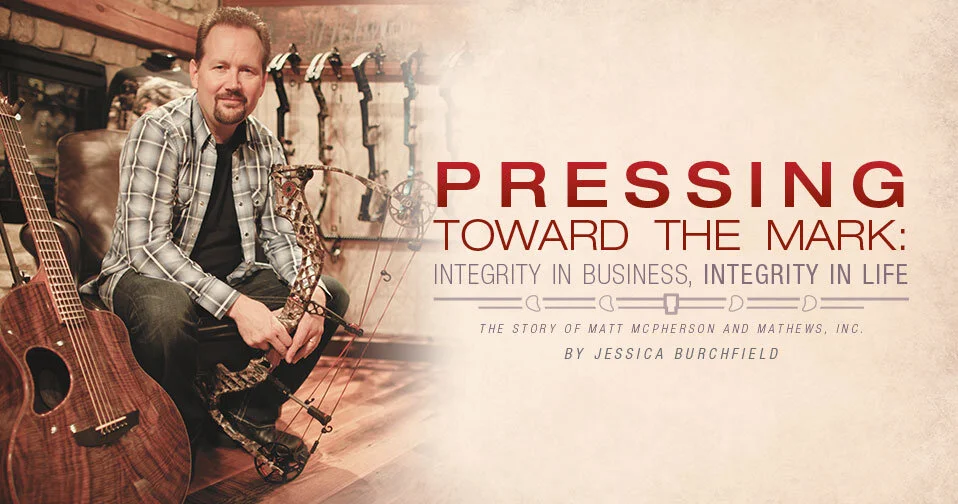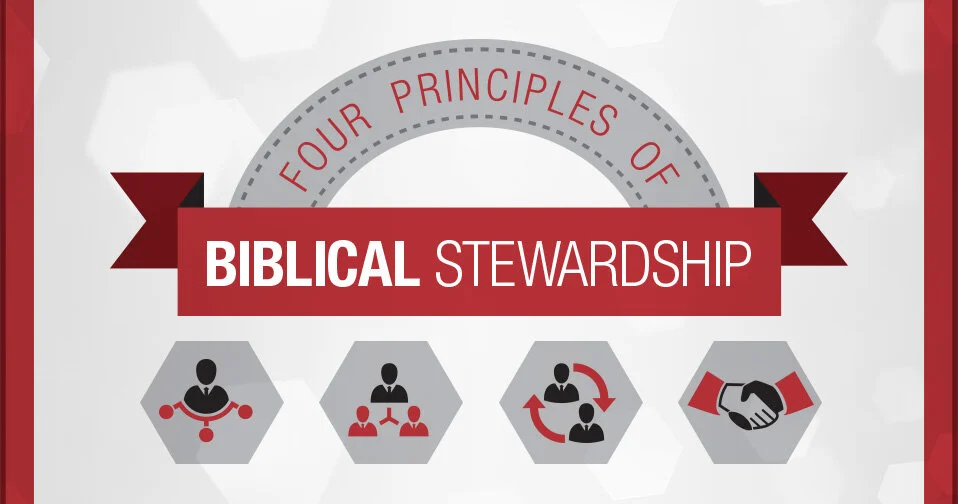When What You Have is Already Enough
— by Troy Austin
I first became interested in stewardship when I submitted to a Crown Financial Ministry course 20 years ago. Having grown up in the deep south in a blue collar Southern Baptist church, I knew about stewardship: Give 10%. . . of the net, right?
This study unlocked in me a new found purpose in my closed-handedness. It led me to the spare bedroom / war room, complete with a giant shower board on the wall (I was not going to waste God’s money buying a real whiteboard) and a hand-me-down recliner in which my poor young bride, Sunny, could relax while I passionately “lectured” her as to how we were going to tighten our grip in order to most effectively manage God’s money.
A few years later, after I violently attempted to pound 1.25 cents out of every penny, I was given a gift that began to loosen the grip on the money flowing into our hands. The gift giver was a mentor of mine: a no nonsense, larger than life, NFL linebacker turned cowboy. When he told someone something, they listened. He handed me this book, The Treasure Principle, directed me to a website called Generous Giving, and told me that God owns it all. I am forever grateful for his leading me into an upside down world that has dominated my thinking since then.
I became mesmerized by spiritual giants like Stanley Tam and RG Letourneau. They were not like the businessmen I knew, read about or idolized. I almost instantaneously created a new idol: I would give away 51% of my income. I would have to tighten my grip for a season, but I would loosen later FOR God. Little did I know, I was still missing it.
Fortunately God was not shaking his head, but was patiently walking with me through numerous trials leading me ever closer to the life of an open-handed steward. He led me to attend, host, and later facilitate Journeys of Generosity with Generous Giving. He led me to work with both National Christian Foundation and Waterstone. He allowed me to meet and work with many incredibly successful Christ followers at different places along their own journeys.
The more I was around these incredible stewards, the more I began to notice that they had more joy than I did and it was not just because they had more wealth. They seemed to see more beauty in relationships and in simple pleasures. They were more grateful. Their yoke seemed easy and their burden light. While they were intelligent and informed in their giving, they did not get bent out of shape if and when things did not go as they had planned.
Fortunately, as I started walking with these people, my tight grip began to relax a little. I began to see glimpses of what these guys were seeing. I desperately wanted more, but it seemed so counter to what I had been taught. It seemed irresponsible at times. . . upside down even.
Tim Keller has been significant in shaping my views on stewardship, and he says this:
If we are Christians, we are living simultaneously in 2 Kingdoms: The right side up kingdom and the upside down kingdom. The right side up kingdom is the one we see physically. It is the one the world tells us we must build: Power, success, comfort, recognition. The upside down kingdom is described by Christ in the sermon on the mount: Weakness, sacrifice, discomfort, rejection. Remember, everything in the right side up kingdom turns to fertilizer. This does not mean we are not to live in the right side up kingdom and even enjoy it, but we cannot be controlled by it. It is not our kingdom.
He goes on to share how you know you are living in the upside down kingdom:
1. You are a reckless giver, so much so that it could put you in financial risk at times
2. You are exploited emotionally by others taking advantage of your generosity
3. You do not feel like God owes you something because you have earned it
4. You recognize that all you have is a gift of grace
Wait a minute, this is stewardship? This does not look like the stewardship I was trying to outline on that shower board all those years ago. Keller goes on to say that the standard for stewardship is the cross. . . whoa! That sounds crazy and imprudent to me. But that is the owner. . . radically generous. . . even to those who do not “deserve” it. . . even when it makes no sense to the world. . . even when it costs Him everything.
If God didn’t keep a tight grip on unlimited grace, then who am I to pinch every penny, even if I’m pinching for the “right” reasons? Generosity isn’t about gaining as much as you can in order to give more away. It isn’t even about giving away everything you have. It’s about acknowledging the free gift of love and grace you’ve already received from the one who owns everything—and in turn holding on loosely to whatever treasures he has placed in your hands.
Related articles
When I pray, am I trying to convince God to bless my business? Or am I asking God to lead and direct the business He had provided? The hard reality is that I sometimes ask God to bless the business plans I had established and thinking that was enough.
At its best, business is both purposeful and profitable, dynamic and gainful, commercial and rewarding. Far from being opposites, good business and good behavior go hand-in-hand, and biblical principles can align with best practices.
The “stewardship” demanded of faith-driven business leaders is profoundly different than the “stewardship” urged by the world. The world essentially sees stewardship as being a “good owner”. God commands being a “steward” instead of an “owner”.
Recognition is the primary task of infancy. Feeding, crying, and even sleeping are just the support system for this most essential work of figuring out who we are, and where we are, by making contact with other people, seeing them seeing us, gradually beginning to build our sense of self through their eyes.
When our identity as entrepreneurs is challenged, our relationship with God—the rootedness and permanence of what it means to be a child of God—and all that comes with it, can moderate how we view all of our other (sub) identities, especially our EI.
Generosity isn’t about gaining as much as you can in order to give more away. It isn’t even about giving away everything you have.
The story of Jacob in the Old Testament is a fascinating tale of pride, humility, success, failure and a man who (quite literally) wrestled with the Lord.
Sheeba and I, we've been in prayer from the time that covid hit. Saying, Lord do more than we know to ask or imagine or dream. And we know that you're the God of big things that moves mountains on behalf of the widow and the orphan and those that you love and to build your kingdom.
The concept for the Kingdom Companies Group came from the journey that Katherine and I have experienced in our attempt to operate a business as stewards for the Most High God. As fallen creatures we have done so imperfectly and have learned lessons through our failures.
God gives us capacity because we are not large enough today to fight tomorrow’s battles.
God multiplies our resources to increase our standard of giving, not just our standard of living. Jesus consistently praises the stewards who give it away, who invest it widely, creating more value for everybody.
A modern day Christian Renaissance Man, Matt McPherson is the founder and CEO of both Mathews Inc., the largest bow manufacturer in the world, and McPherson Guitars, a leading name in the music industry for hand-crafted acoustic guitars
GloryBee sits squarely in an interesting cultural nexus: Christian-owned, organic food, Oregon, and committed to environmental sustainability.
Belief in the “Prosperity Gospel”—that God financially blesses faithful followers—does not turn individuals into successful entrepreneurs. But prosperity beliefs can fuel values linked to entrepreneurial thinking, such as power and achievement, according to a Baylor University study.
This article was from a collection of White Papers compiled for attendees of the CEF’s 2019 Global Event. Today, we share Craig Hill’s White Paper — “I have found throughout my life that if I would accept my role as a Kingdom ambassador in business, there are many more opportunities to minister to unbelievers than I have ever had in church or ministry settings.”
What does stewardship look like in our lives today? What does it look like in our businesses? Unfortunately, many Christians today only associate the idea of stewardship with sermons, church budgets and building programs. The idea of biblical stewardship is much more expansive. It is where the concepts of faith, work, and economics intersect.
An article from Scott Rodin’s website “The Steward’s Journey” — Gary Ringger stewards businesses, foundations, nonprofits with hope. He was in his early thirties, the president of a successful agricultural feed company, and a start-up food processing business. He had a wife and three young daughters. But Gary Ringger was experiencing the darkness of depression.
Does aircraft maintenance have anything to do with God's work? Paul and Betty Abbott and their sons Luke and Aaron believe so. The Abbotts took over operations of Covington Aircraft shortly after Paul's graduation from LeTourneau University, know that they were just stewards of a company that belonged to God.
Cheryl Bachelder, former CEO of Popeyes Louisiana Kitchen, Inc. and author of Dare To Serve, shares her thoughts on ownership mentality vs. a stewardship mindset. “What has been entrusted to your care? Are your actions carefully and responsibly stewarding these resources?”
Bubba Watson won the 2012 & 2014 Masters using PING irons, giving John Solheim another reason to smile. Listen here as the CEO of PING shares with LeTourneau Center about the industry & their work to honor God.
Theology of Work Project digs into a famous parable —“One of Jesus’ most significant parables regarding work is set in the context of investments (Matt. 25:14-30). A rich man delegates the management of his wealth to his servants, much as investors in today’s markets do.”
How can you worship God through your work? CEO and Founder of Hobby Lobby, David Green, shares how he uses his God-given talents and resources in business to enlarge God's kingdom and to serve his employees and customers.
Wes Willmer builds us up in his piece: How do we see work and earning in the bigger picture of our Christian faith? He reveals that increasing our impact is not about earning more money, but that it happens when we acknowledge our place in God’s work, when we know ourselves, and when we understand how God views money.
From the LeTourneau Center for Faith and Work, we hear Camcraft’s view of their business in manufacturing high-precision machined components as a gift to them from God, and they see themselves as merely stewards of the business.
At Generous Giving’s annual gathering, John Cortines and Greg Baumer were invited to speak about their book, Through the Needle. The book covers the Harvard MBAs’ struggle to answer - “As young Christians with sky-high earnings potential, what should they plan to do with their money?”
Rev. Dr. Helen Rhee, Professor of Church History at Westmont College & Associate Pastor of Free Methodist Church, adds to our understanding of God’s intent and absolute ownership of the created world and the ramifications for human stewardship. She gives depth to notions of “sufficient care” and “appropriate enjoyment” in a global culture of affluence.
Yesterday on our podcast, you heard a great interview with Alan Barnhart. Within Barnhart Crane & Rigging, which he runs with his brother Eric, a group of employees and spouses decide where to distribute a portion of profits made every year.
Tim Macready, Chief Investment Officer at Christian Super, shares how the superannuation pension fund is on a journey of applying God’s Word to the way they, as Christian professionals, invest their beneficiaries’ assets. This includes learning to be better stewards of creation, looking for ways to promote human flourishing, and seeking to be redemptive in all that they do.
In the video clip today, Henry and panelist Tom Blaisdell discuss permanent capital as a unique and valuable approach for the Christ-centered investor. The panel as a whole highlights the importance of kingdom-minded economics as critical to faith-driven investing.
——




























What 1 Timothy 6:9-10 Has to Say to Entrepreneurs about success and the love of money.